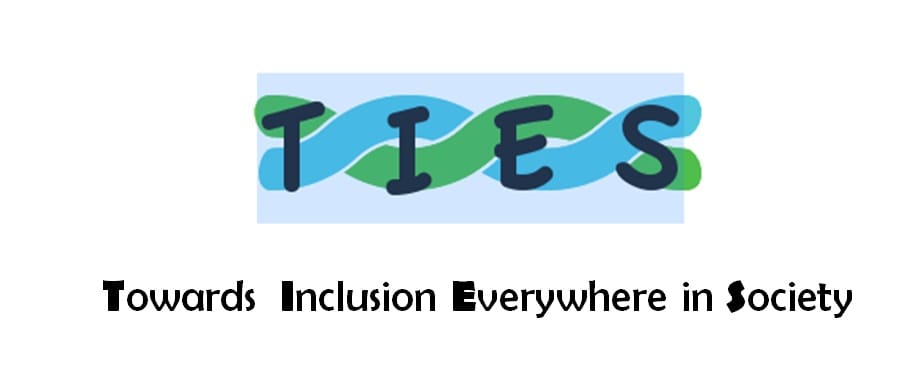- Home
- Our Vision
Our Vision
OBJECTIVES OF TIES
As its name suggests, ‘”TIES” works to create & strengthen ties that brighten the future of
children and adults with special needs, ensuring that they can achieve their rightful place in society.
● To provide a functional education to children with intellectual disabilities where the thrust
is on life skills and inclusion.
● To promote Vocational & Skill training to young adults with intellectual disabilities with a
focus on providing livelihoods to them & keeping them meaningfully engaged.
● TO help Individuals with intellectual disabilities to be as independent as possible with
assistance on Home programmes focusing of activities of daily living and household
chores.
● To provide training & job placement of individuals with intellectual disabilities based on
their strengths, so that they could be included in the community.
● To support & provide Respite Care to parents & families of people with intellectual
disabilities & cater to their mental well being as well.
● To organize activities that will support the neurodiverse individuals to participate in the
same activities and experiences as neurotypical people.
● To create awareness within communities and sensitize them, so that people with special
needs are accepted into all aspects of society.
● To develop models of Recreational, Residential and Assisted living facilities which will
ensure that people with intellectual disabilities are well cared for, even beyond the
lifetime of their parents. Over the last two years, TIES has worked with parents, young
adults and children to identify and start facilities & activity centres that provide care and
training.
Current situation of Goa Intellectual Disability in Goa
Unfortunately, in terms of numbers, the special needs/neurodiverse community across India is
growing substantially. The support at early intervention has improved over the years, however
support for vocational training and assisted living for young adults above the age of 18 is
completely missing. This impacts the quality of life of both the special needs/neurodiverse adults
as well as parents who have very little support that they can depend on.
The support in Goa remains like the rest of the country. One of main highlights is the scheme for
CWSN (Children with Special Needs) being drafted and implemented for life skill Resource
Rooms in mainstream schools of Goa. Over the last five years, TIES has expanded its scope so
as to focus on young adults with intellectual disabilities. These adults need intervention so that
they acquire appropriate vocational training skills. More importantly as parents grow older,
adults with special needs look for respite centres and residential facilities where with assistance
from caregivers they can live with dignity and also be integrated into the community.
PLAN AND PROPOSAL 2024-2027
In the next three years TIES is looking to build on its foundation of the last fourteen years. There
are three focus areas that the organisation will work on:
. Set up and operate multiple activity centres in North Goa
The experience and activity centres are important as most often this is a safe place for
special needs adults to explore their potential and move towards becoming functional.
As a day care centre, it also helps working parents who need a safe place for their
children and works as a respite to parents
It is the endeavour of TIES to strengthen & sustain the present STAR project with more
students & facilities. Going forward it is proposed to have slightly larger centres which
will have at least 3 rooms and space for a garden so that it can accommodate 8-10
persons with intellectual disabilities along with a Special educator, Assistant teacher,
Helper and 2 care givers. The STAR project has been a successful holistic programme
for the students & will be a great model to replicate on a larger scale. The team will work
to market these products so that there will be some income for the centre & prove that
people with special needs can also be productive members of the society
. Develop Home programmes with a focus of Activities of Daily Living & Household
chores. This is a project that TIES would like to undertake to help Individuals with
Intellectual disabilities to be independent. This project will be working with families
whose children are unable to attend the day centres or institutions. These sessions will
be done on an individual basis though online or at home as per requirements with a
team including a special educator who will be designing & structuring & monitoring
activities.
. Develop and execute skill development programmes for caregivers and
professionals working with special needs adults
Special needs adults need trained caregivers. Currently there are sporadic training
programmes which are available in Goa. TIES will look to consolidate these experiences
into comprehensive training modules. The organisation will work with existing teams
from Caritas and the Indo-German vocational training centre for Nursing in Siolim, Goa.
TIES will also reach out to other training institutes or programmes across India and
globally. The training for caregivers will also be important to feed into the residential
centres which will need professional support staff.
. Work to build a community that will include people with special needs
TIES will continue to work with its focus on building an inclusive community.
We will work with multiple stakeholders including government, other organisations both
nationally and internationally, communities and parents.
We will conduct events that will allow for socialisation and integration of diverse families.
Additionally, we will document our experiences and best practices so that this could be
shared and discussed at multiple forums.
Introduce a hub/secretariat for
organisations working in the sector in Goa
TIES will also set up a secretariat office which will act as a hub for other organisations working
in the sector
Parents are the first and most important advocates for their children. As its name
suggests, “TIES” will continue to create & strengthen ties that brighten the future of
children with special needs, ensuring that they can achieve their rightful place in society

